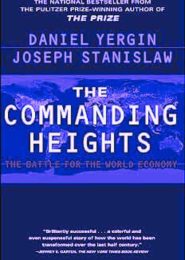Money, Banking, and The Federal Reserve System (2006)
The 2006 documentary titled Money, Banking, and The Federal Reserve System delves into the intricate workings of the Federal Reserve, a powerful institution that profoundly impacts the global economy.
The documentary opens by acknowledging that for most Americans, the term “Federal Reserve” is merely an inscription on dollar bills. However, the film aims to demystify this seemingly innocuous name by revealing the immense influence wielded by the central bank.
Thomas Jefferson and Andrew Jackson, historical figures who understood the significance of the Federal Reserve, serve as touchpoints. Their insights provide context for the audience.
The film introduces viewers to the origins of the Federal Reserve, explaining how and why it was founded. It delves into the mechanics of the central bank, emphasizing its impact on both the broader economy and individual lives.
Sound money and banking practices emerge as critical themes. The documentary advocates for a return to these principles, which could potentially curb the statism, inflation, and business cycles perpetuated by the Federal Reserve.
Featuring prominent voices such as Ron Paul, Joseph Salerno, Hans Hoppe, and Lew Rockwell, the film presents a compelling case for reevaluating the role of the central bank.
Alan Greenspan, the former chairman of the Federal Reserve, reportedly expressed discomfort with the documentary’s content. This reaction underscores the film’s impact and the urgency of its message.
In essence, Money, Banking, and The Federal Reserve System serves as an educational and thought-provoking exploration of an institution that shapes our financial landscape. By understanding its intricacies, viewers gain insights into economic stability, monetary policy, and the need for reform.
This documentary, steeped in American history and Austrian economics, encourages viewers to prioritize the examination and potential regulation of the Federal Reserve. It remains a powerful tool for those seeking clarity on this complex subject.




